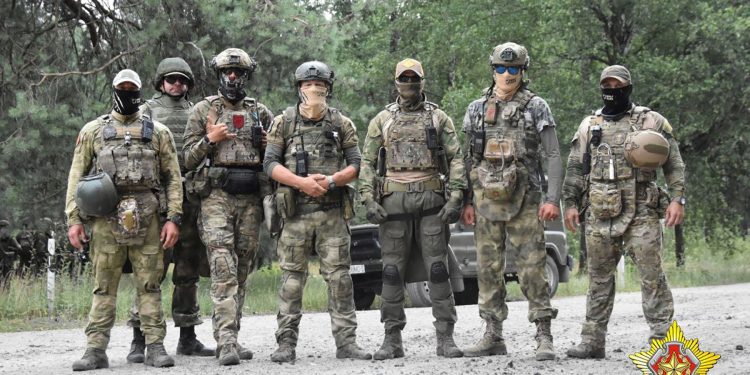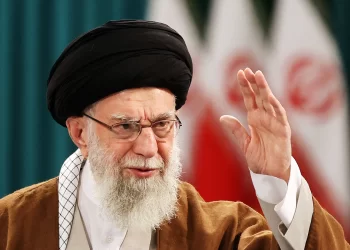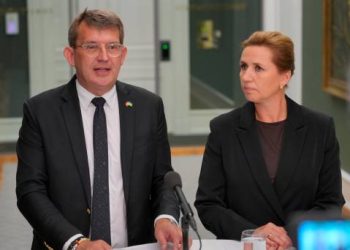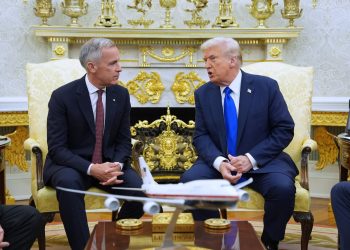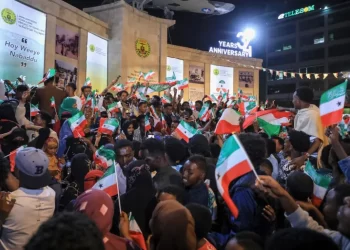The Russian security agents were smirking. David was panicking. As the hours-long interrogation dragged on, he worried they would send him back to occupied Mariupol and into the ranks of Russia’s army.
Having lived through three years of Russian rule in the southern port city, he and his friend Nikolai — both teenagers — were fleeing after being sent call-ups for Russian military service.
At a checkpoint on the way out, Russian agents accused them of smuggling drugs, implied they would plant evidence, and threatened them with jail if they discovered the pair were trying to go to Kyiv.
“I was sitting there and thinking that this is the end, they’re going to send us back,” 19-year-old David told AFP in an interview in the Ukrainian capital.
Their testimony shines a light on Russia’s campaign to recruit Ukrainians to fight against Kyiv — and its efforts to stop young men from leaving occupied territory.
They spoke under pseudonyms and AFP is not disclosing further details of their journey for security reasons.
Russian troops captured Mariupol in May 2022 after a bloody weeks-long siege that killed at least 22,000, according to Ukrainian city officials in exile.
Once it had been seized, David and Nikolai say their school became a hub in Moscow’s drive to recruit young soldiers.
Under a new portrait of President Vladimir Putin, the school director greeted them as “future defenders” of Russia.
“I was just like, ‘What the hell? Defenders of what?’,” David recalled.
Rights groups and exiled Ukrainian officials say schools across occupied Ukraine help military authorities compile registers of their students, facilitating call-ups to the Russian army.
“They have one goal — that every Ukrainian child becomes a Russian soldier in the future,” Ukraine’s human rights ombudsman Dmytro Lubinets told AFP.
Open support for Kyiv, or even public shows of Ukrainian identity, are incredibly risky in Mariupol, which is tightly controlled by Russian security services.
But Nikolai and David, adolescents when the city was captured by Russia, were determined to resist.
“I was firm in my beliefs. I knew that on February 24, they came into my country, no one can convince me otherwise. I heard the explosions,” Nikolai said, referring to the start of Russia’s invasion.
They also studied the Ukrainian curriculum online in secret. After Russia bombed a theatre being used as a shelter in March 2022, Nikolai ventured into the basement to witness the devastation.
“I still remember it. Mattresses. Corpses. The smell of death — and flies,” he said.
Estimates for the death toll vary from dozens to hundreds.
When the summonses arrived, the two childhood friends decided to escape.
“You won’t make me fight against the Ukrainian army — it’s my own,” Nikolai said.
Hunched in hoodies as they spoke to AFP in Kyiv, their teenage demeanour was at odds with the seriousness with which they recounted their experience.
Kyiv says the Russian army has drafted more than 46,000 Ukrainians from the occupied territories, including over 35,000 from Crimea, which Russia seized in 2014.
AFP cannot verify those figures and Russia does not publish such statistics.
Conscripts are not supposed to be deployed to fight, but Moscow has admitted that some have been by accident.
They also face intense pressure to sign full army contracts, rights groups say.
Those who evade the draft can be jailed for two years.
So David and Nikolai pooled their savings, packed, and found transport.
“I was crying because I was leaving my hometown. But I had no other choice,” David said.
At a checkpoint, Russian security agents questioned them separately in a small room for around five hours.
“They began smiling, putting pressure on me, trying to make me slip up,” said David.
They took his fingerprints, asked why he had deleted photos from his phone and threatened to plant drugs on him.
If he was not really going to Russia — as he told them — he could be jailed, they said.
“Anyone would feel scared in such a situation, especially considering how old they were, how old we were,” said David.
To their surprise and relief, they were eventually let through. But they now worry about their friends back home.
Russia is expanding its draft and tightening its system for registering Ukrainians in occupied territory.
A classmate wanted to flee with them, but did not have a passport.
To get one he would have to visit the military enlistment office, where he feared being conscripted on the spot.
“He just can’t run away,” David said.

